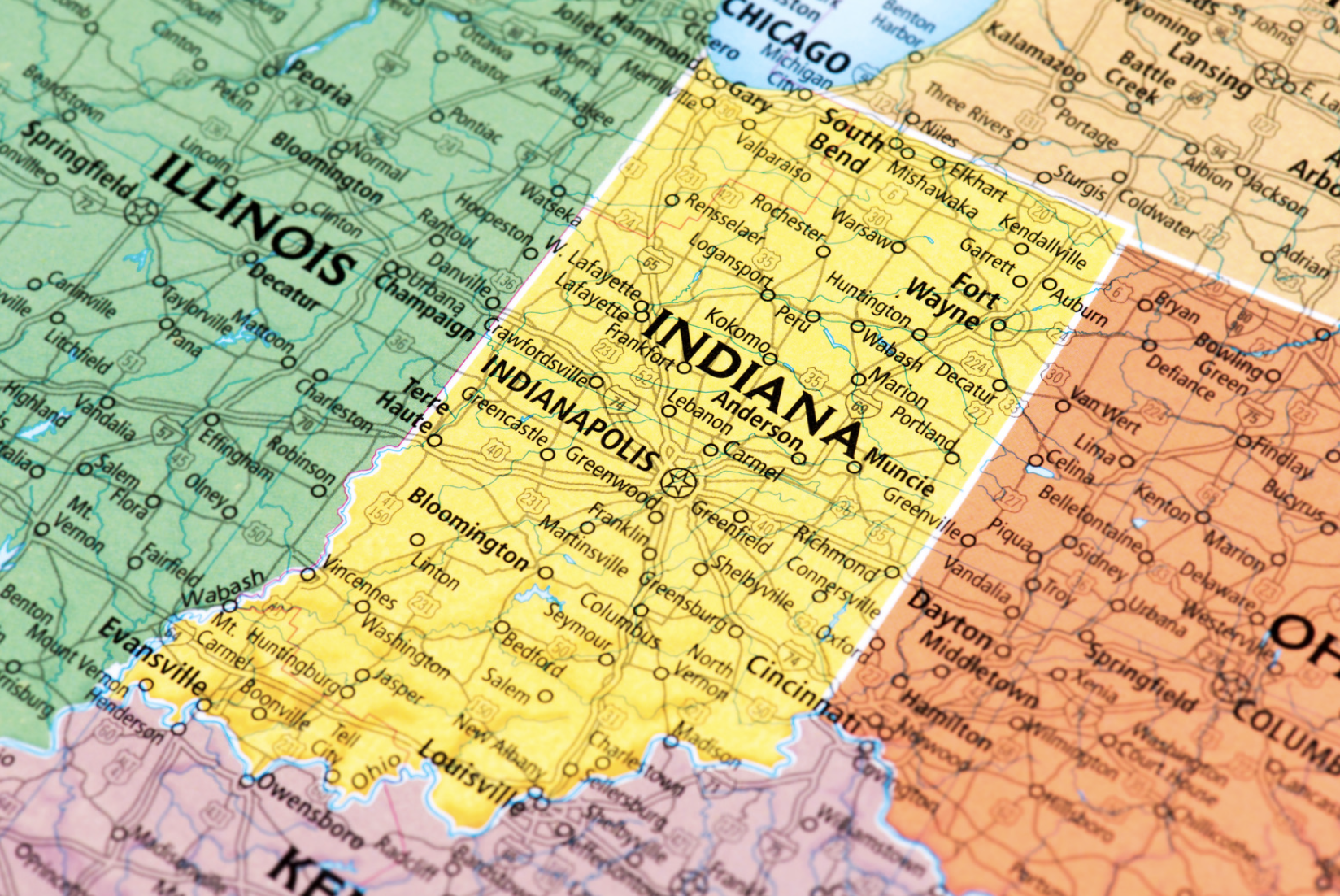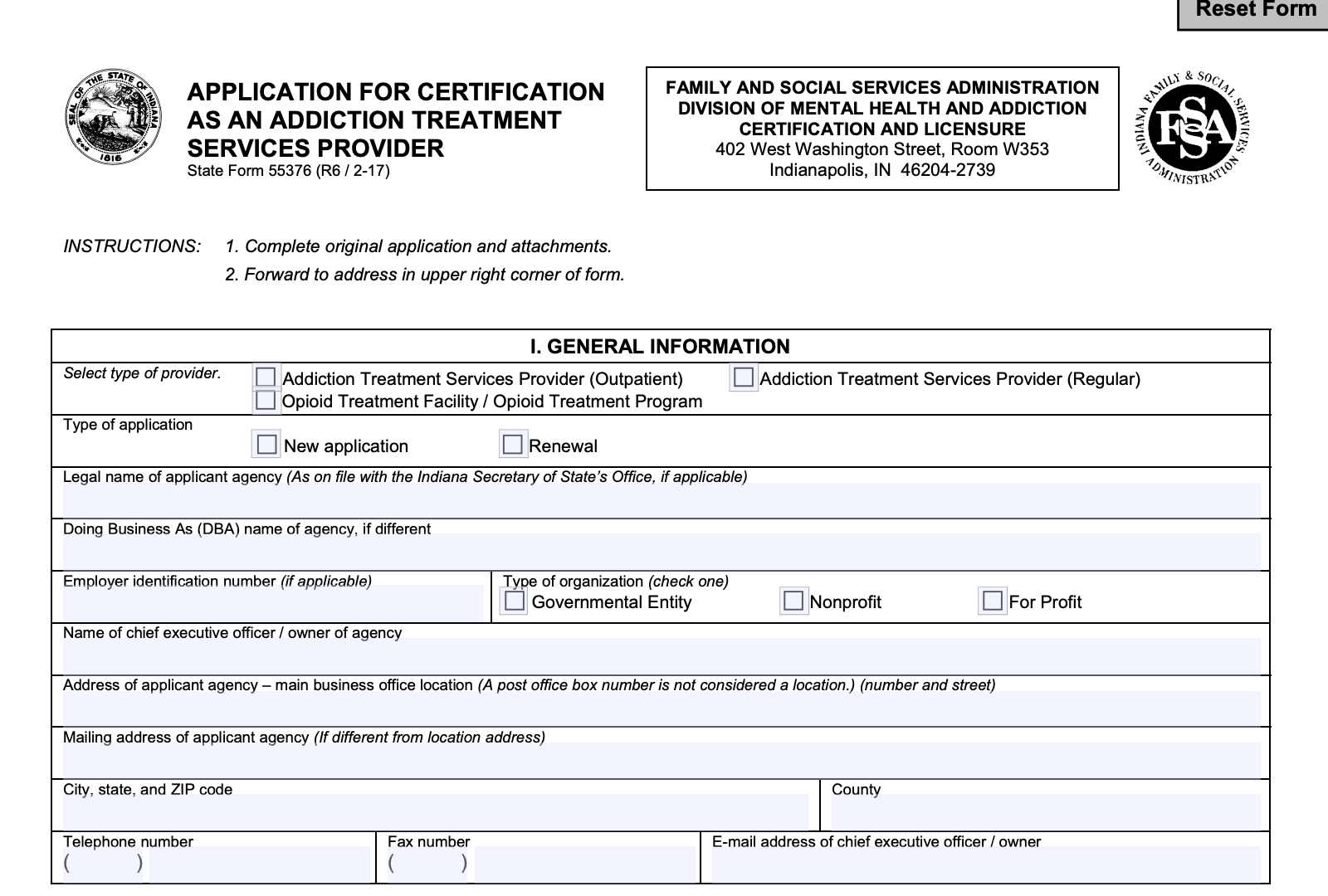According to the University of Indiana, roughly 1 in 12 Hoosiers - or half a million Indiana residents - struggle with substance use disorder (SUD). There were over 2,000 drug overdose deaths in Indiana in 2020. Worse, substance abuse is the number one leading cause of death for pregnant women and new moms in Indiana. Interestingly, gambling addiction is also a particularly big problem in Indiana.
While state agencies are currently working to expand the number of opioid treatment programs (or OTPs) in Indiana, much of rural Indiana still grapples with “treatment deserts.” Patients in these underserved areas face long travel times to far-flung clinics and addiction treatment centers, making access to timely care more difficult.
Indiana has a long way to go before its population has access to treatment that adequately addresses the magnitude of the state’s substance use problem. That’s extremely bad news for people with SUD in Indiana, but it’s positive news for those looking to open an addiction treatment center in Indiana. With sky high demand, prospective treatment centers should be able to identify locations, levels of care and populations that fill a specific need in many communities throughout the state with relative ease.
Read on for more information about what goes into opening an addiction treatment center in Indiana, as well as tips for those just starting the process of opening a rehab in the state.
Indiana Requires Nearly All Addiction Treatment Centers to Get Licensed by the State
According to state laws, specifically Section 440 IAC 4.4-2-1:
(a) Every provider of addiction treatment services in Indiana must have either regular certification or outpatient certification issued by the division to provide addiction treatment services.
Exceptions to this rule include addiction treatment services run by the government, corrections facilities, and “child caring institutions” like those run by the Department of Family Services on behalf of foster children. Self help groups and prevention-oriented programs are also exempt from Indiana’s state licensure requirements.
In Indiana, There Are Two Kinds of Licensed Addiction Treatment Centers: “Regular” and Outpatient
Indiana hands out two different types of licenses to addiction treatment centers depending on certain organizational features.
For residential centers and all centers with more than 11 staff members, Indiana requires applicants to get what it calls a “regular” license.
For outpatient centers and all centers with 10 or fewer staff members, the state’s outpatient license will suffice.
In reality, the application process for both licenses is very similar.
You can find the checklist for “regular” (inpatient) certification and outpatient certification on the state’s Family and Social Services Administration website.
Indiana Requires All Licensed Addiction Treatment Centers to Obtain Accreditation With an Agency Like CARF or the Joint Commission
All regular and outpatient addiction treatment centers in Indiana must obtain accreditation from an approved accrediting body to receive their license from the state. Treatment centers without accreditation may apply for a temporary license with the state, but must obtain accreditation within a year. You can find Indiana’s approved list of accrediting bodies here. The usual suspects - CARF and the Joint Commission - feature prominently on this list.
The accreditation requirements in Indiana are relatively rare among state licensing programs. Most states will accept proof of accreditation as a supplement to licensing applications, and some will waive certain requirements or steps involved in the licensing process if an organization provides proof of accreditation by a legitimate authority, but most states don’t require accreditation along with licensing.
State Form 55376 is the Heart of Indiana’s Addiction Treatment Center Licensing Application
State Form 55376, also know as the “Application for Certification of Addiction Treatment Services Provider” form, is the main form both “regular” and outpatient licensing applicants must complete in order to get licensed in Indiana. It’s a three page application with pretty standard features for a state licensing form.
In addition to State Form 55376, both “regular” and outpatient licensing applicants must also submit:
policies and procedures manual
Detox statement signed by medical professional that says all detox will be medically supervised
“Any and all waivers” from Indiana’s Division of Mental Health and Addiction
Statement of Understanding and Compliance with 440 IAC 4.4
Interested in Opening an Addiction Treatment Center in Indiana? We Can Help!
Behave Health is committed to making it easier - and more profitable - to operate evidence-based, results-focused addiction treatment centers.
Get your free trial started today and see why more addiction treatment centers prefer Behave Health.
Need help with certification? Behave Health can also help direct you to the right resources for help with Licensing or Accreditation by either The Joint Commission or CARF. Mention to your product specialist that you’re interested in this service after you start your free trial!






